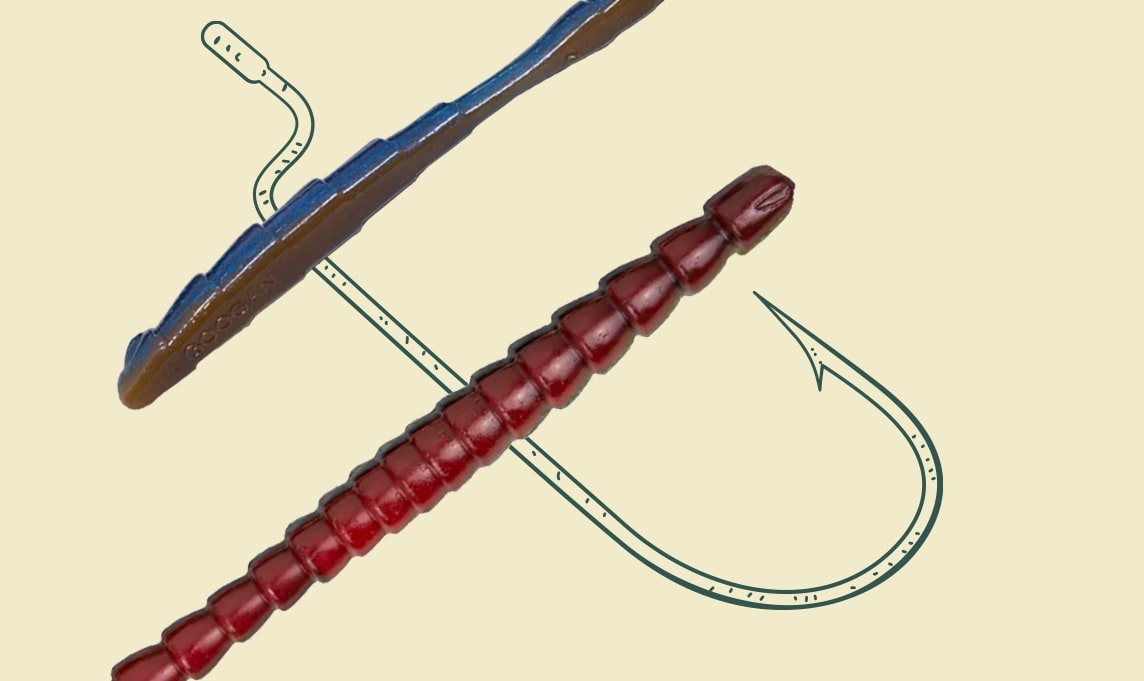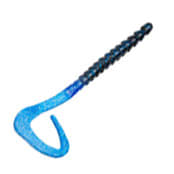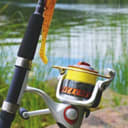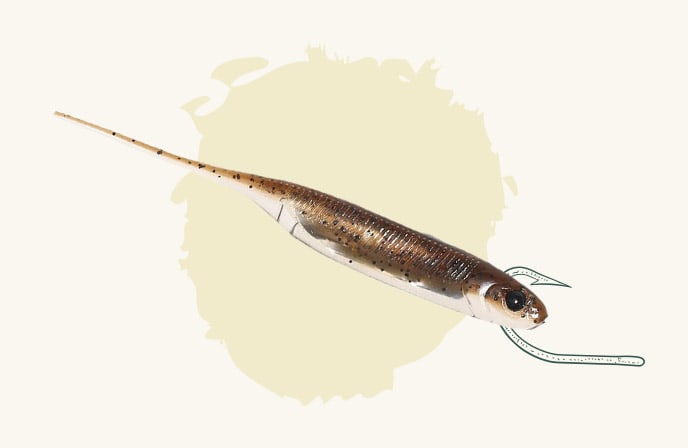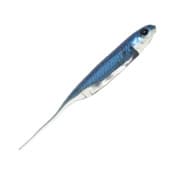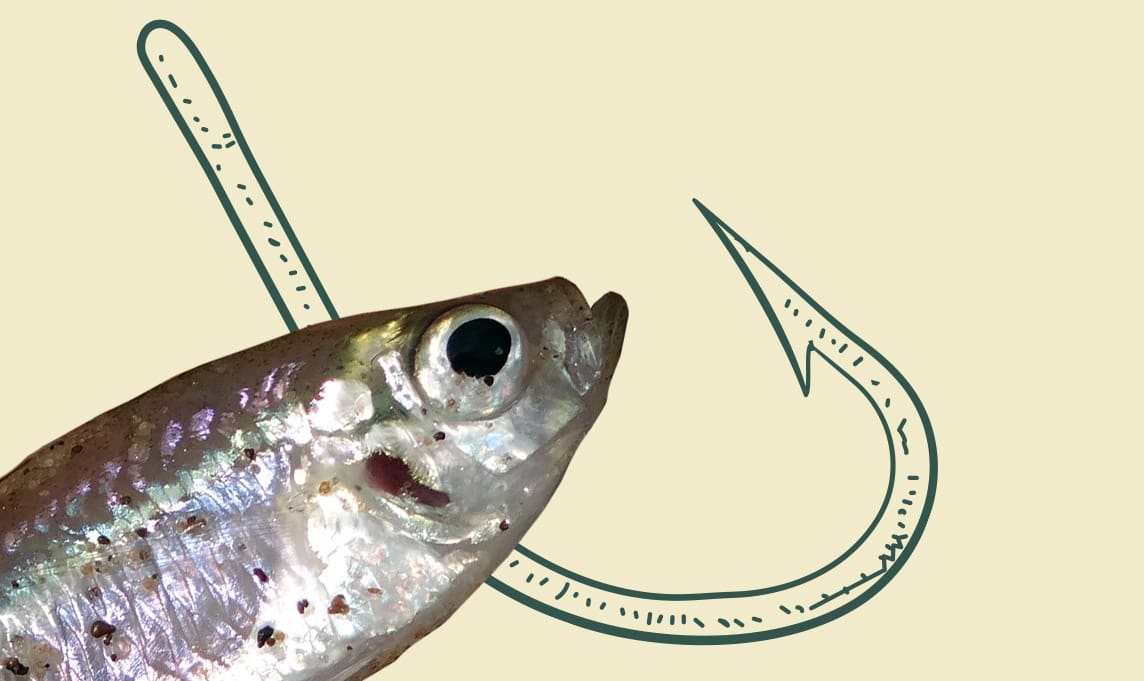

FUNDAMENTAL SKILLS:
HOOKING & REELING GUIDE
![]()
Incorrectly rigging a hook into a soft plastic or live bait can lead to more hang-ups and missed fish. The proper way to rig hooks into baits depends on the lure and fishing technique your plan to use.
TABLE OF CONTENTS
Hooking Soft Baits
Hooking Live Baits
HOOKING SOFT BAITS
Three commonly used tactics to catch bass with soft plastic baits are Texas rigs, wacky rigs and drop-shot rigs.
TEXAS RIG
The first step in Texas rigging a soft plastic bait is to impale the hook point into about 1/4 inch of the center of the plastic bait’s head. Run the hook out of the bottom of the bait and thread the hook all the way through the lure. When the bait reaches the elbow bend of the hook, twist the hook around so it goes over the bend. The next step is to lay the hook point next to the lure and determine where the hook point should enter the lure to rig it straight. Then back up the bait and stick the hook point into the spot you chose and drive the point up into the body to complete the rig.
LEARN MORE FROM OUR BLOG
WACKY RIG
Wacky rigging a floating worm or stickworm is generally sticking a hook through the middle of the worm or close to the worm’s egg sack. Slipping a rubber o-ring over the middle of the worm and placing the hook through the rubber ring is a good way to prevent from losing worms when the lures get thrashed by bass.
LEARN MORE FROM OUR BLOG
DROP SHOT RIG
Nose hooking a plastic minnow or finesse worm is the best way to rig your bait for drop-shotting. The lure is hooked by driving the hook through the chin of the bait and out the head to give it a lifelike baitfish appearance.
LEARN MORE FROM OUR BLOG
HOOKING LIVE BAITS
Four ways to hook a live minnow are through the lower and upper lips, through its back slightly in front of the dorsal fin, through the front of the eyes and through the mouth and out its stomach behind the gills.
The best way to hook a crayfish for bass fishing is to insert a baitholder hook through the bottom of the crawfish’s tail about 1/2 inch from the end of the tail and out the top to allow the mudbug to move naturally. A hook can also be inserted in the bony nose of the crayfish to minimize its movement and prevent it from crawling under rocks.
LEARN MORE FROM OUR BLOG
MORE IN FUNDAMENTAL SKILLS
![]() How to Setup Your Rod and Reel
How to Setup Your Rod and Reel
Learn how to select and set-up the right fishing tackle for your adventure.
Read More
![]() Tying Knots
Tying Knots
Learn how to tie the essential knots to get you started fishing.
Read More
![]() How to Cast
How to Cast
Discover how to position your body to nail the right cast.
Read More
![]() How to Remove a Fishing Hook
How to Remove a Fishing Hook
Discover how to remove a fishing hook without harming the fish.
Read More
RELATED PRODUCTS


